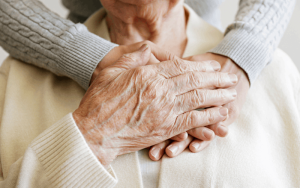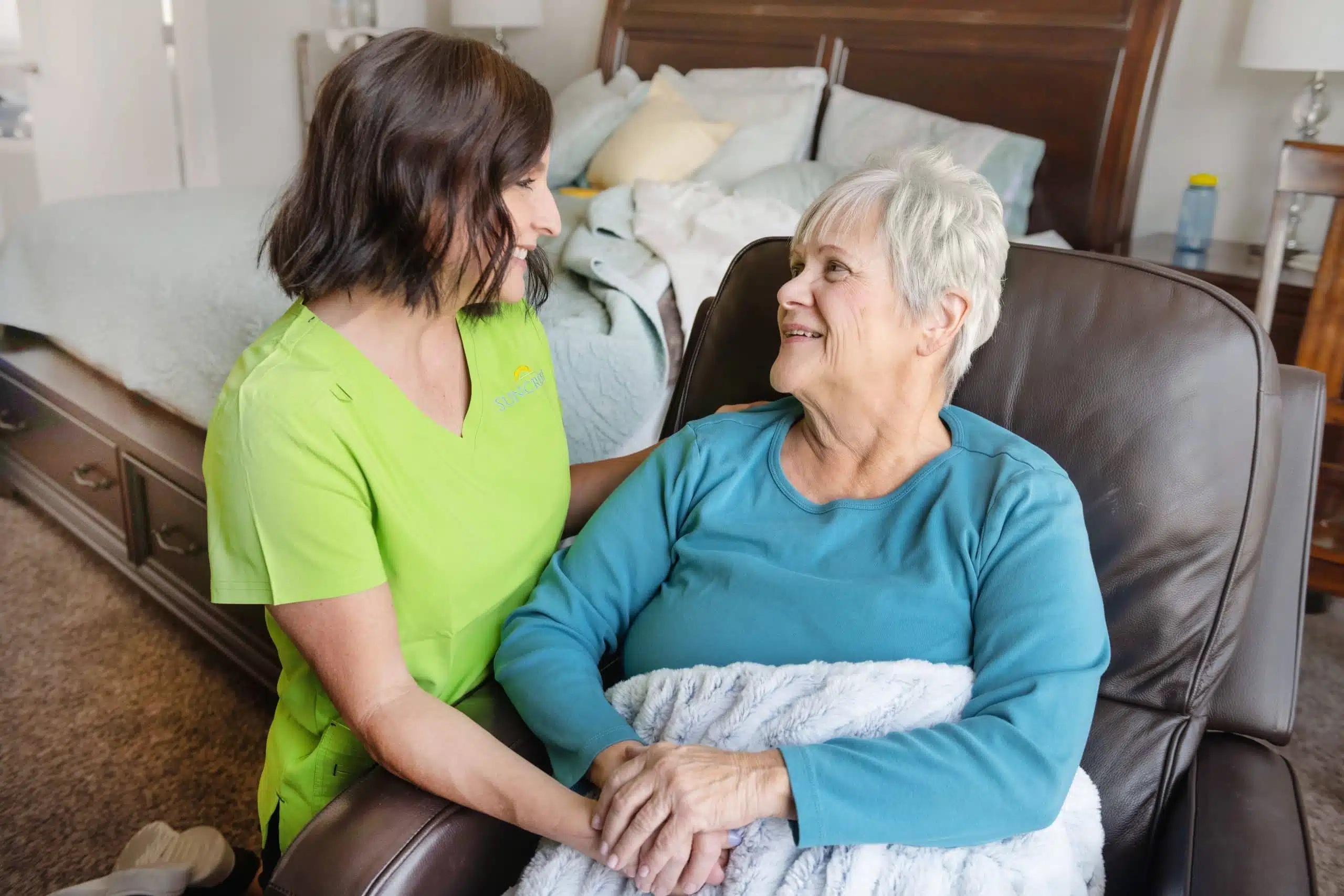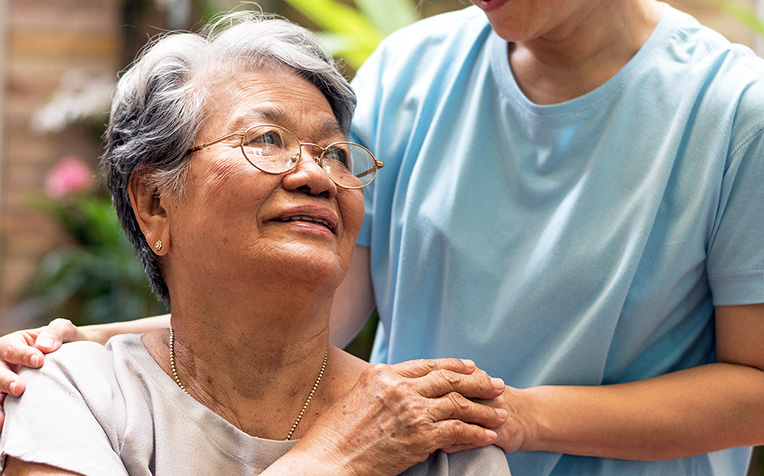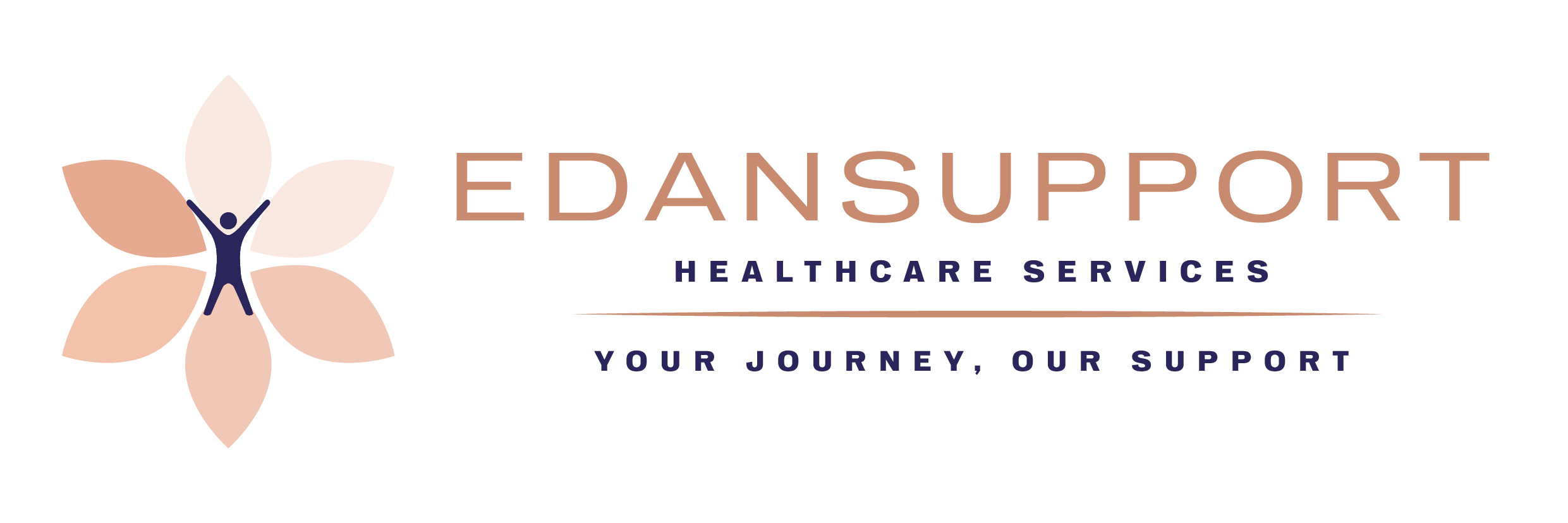Services
What is End of Life Care?
End-of-life care encompasses the medical, emotional, and practical support provided to individuals in the final stages of a terminal illness or nearing the end of life. Its primary aim is to prioritise comfort, dignity, and quality of life, ensuring that both physical and emotional needs are met. This compassionate approach focuses on managing pain and symptoms, offering emotional support, and addressing practical concerns, while respecting the individual’s preferences and values. End-of-life care also extends to supporting families and loved ones, helping them navigate this sensitive and challenging time with care and understanding.

Key components of end-of-life care include:
End-of-life care is a comprehensive and compassionate approach that addresses the multifaceted needs of individuals nearing the end of their lives. The following are its key components:Pain and Symptom Management: Ensuring comfort by managing pain, nausea, breathing difficulties, and other symptoms, prioritising the individual’s physical well-being.
Emotional and Psychological Support: Offering emotional care to both the individual and their family through counselling, support groups, or open discussions to address fears, concerns, and wishes.
Communication: Facilitating clear, honest conversations about the individual’s prognosis, treatment options, and preferences, involving medical professionals, family, and caregivers.
Decision-Making: Supporting informed choices about medical care, such as whether to continue aggressive treatments or focus on comfort, and the use of life-sustaining measures like ventilators or feeding tubes.
Personal and Spiritual Care: Respecting the individual’s spiritual beliefs and personal values, providing resources for religious or spiritual practices to support their sense of peace and dignity.
Practical and Administrative Support: Assisting with tasks like financial planning, legal documents (e.g., advance directives, wills), and coordinating hospice or palliative care services.
Hospice and Palliative Care: Hospice focuses on comfort and support for individuals in the final stages of life, while palliative care aims to enhance quality of life and can be provided alongside curative treatments earlier in the illness.
Respect for Wishes: Honouring the individual’s preferences for their care, including how and where they wish to spend their final moments, ensuring their dignity and autonomy are upheld.
By addressing these components, end-of-life care provides a holistic framework that ensures physical comfort, emotional support, and respect for the individual’s values, enabling them to experience dignity and peace in their final stages.

Providers of End-of-Life Care
End-of-life care is delivered by a multidisciplinary team of healthcare professionals and support staff who collaborate to address the physical, emotional, and practical needs of individuals nearing the end of life. Key providers include:
Physicians and Medical Specialists: Doctors, including oncologists, palliative care specialists, and hospice physicians, manage pain and symptoms, discuss treatment options, and ensure medical decisions align with the individual’s wishes.
Nurses: Registered nurses and nurse practitioners provide direct care, administer medications, manage symptoms, and offer emotional support to both individuals and their families.
Palliative Care Teams: These teams comprise doctors, nurses, social workers, and other specialists who deliver comprehensive pain and symptom management alongside emotional and psychosocial support.
Hospice Teams: Hospice care teams, including nurses, home health aides, social workers, chaplains, and volunteers, focus on holistic care, typically in the home or a hospice facility, ensuring comfort and dignity.
Social Workers: Social workers provide counselling, assist with advance care planning, connect families with resources, and support decision-making during this sensitive time.
Chaplains and Spiritual Counsellors: These professionals address spiritual and existential needs, offering guidance and comfort that aligns with the individual’s beliefs and values.
Psychologists and Counsellors: Mental health professionals help individuals and families navigate grief, anxiety, and complex emotions associated with end-of-life care.
Home Health Aides: Trained caregivers assist with personal care, daily activities, and household tasks, ensuring comfort for individuals receiving care at home.
Volunteers: Volunteers provide companionship, respite care, and non-medical support, contributing to the emotional well-being of individuals and families.
Pharmacists: Pharmacists ensure proper medication management, address pain relief, and monitor for drug interactions or side effects.
Therapists: Occupational, physical, and speech therapists support comfort and mobility, enhancing the individual’s quality of life and functionality.
This diverse team works collaboratively to provide compassionate, comprehensive end-of-life care, ensuring individuals and their families feel supported throughout this important stage.

What Care Do People Want at the End of Life?
The care people seek at the end of life is deeply personal and varies based on individual preferences, values, cultural backgrounds, and beliefs. However, certain themes commonly emerge, reflecting the universal desire for comfort, dignity, and meaningful support during this time.
Comfort and Pain Management: A primary concern is to remain comfortable and free from pain. Effective management of symptoms such as pain, breathlessness, and nausea is essential to improving quality of life in the final stages.
Dignity and Respect: Individuals wish to be treated with dignity and respect, with their preferences and decisions honoured. Maintaining privacy and being involved in care choices are crucial aspects of feeling valued and respected.
Control and Autonomy: Retaining a sense of control over medical decisions and care is important. Many want to be actively involved in discussions about treatment options, life-sustaining measures, and care transitions.
Emotional and Psychosocial Support: Emotional well-being is a key focus at the end of life. People value support from compassionate caregivers who listen, understand, and help them navigate fears and complex emotions.
Communication and Information: Honest, clear communication from healthcare providers is highly valued. Understanding the prognosis, treatment options, and what to expect helps individuals make informed decisions and feel prepared.
Spiritual and Cultural Needs: Respecting spiritual and cultural beliefs is essential for many. Support from chaplains, spiritual counsellors, or cultural liaisons ensures these needs are met in a meaningful way.
Fulfilling Wishes and Goals: Many individuals seek opportunities to fulfil personal goals or wishes, such as spending time with loved ones, creating memories, or participating in cherished activities.
Support for Family and Loved Ones: Involving family members in the care process and ensuring they feel informed and supported is often a priority. Strong communication and emotional support for families ease their journey as well.
Closure and Saying Goodbye: Having the opportunity to say goodbye to loved ones and address any unfinished business provides emotional closure and peace for both the individual and their family.
Minimising Burden on Family: Reducing the emotional and practical burden on family members is a significant concern for some. Advance care planning and discussing end-of-life preferences help alleviate stress for loved ones.
End-of-life care is most effective when it is personalised, addressing these physical, emotional, spiritual, and practical needs to ensure a dignified and compassionate experience for both the individual and their family.What We Do
At Edan Support, we are dedicated to providing comprehensive care and support for individuals and families during life’s most challenging moments. Our services are tailored to address the diverse needs of those nearing the end of life, ensuring comfort, dignity, and compassion.- Guidance and Decision-Making: We help families navigate difficult decisions and establish clear goals of care that align with their loved one’s wishes and needs.
- Pain and Symptom Management: Our team focuses on relieving pain and managing symptoms to enhance comfort and quality of life.
- Communication and Advocacy: We act as a bridge between families and healthcare providers, fostering clear and compassionate communication to ensure everyone is informed and supported.
- Continuity of Care: Whether in the hospital or at home, we facilitate seamless transitions and continuity of care during multiple admissions or changes in settings.
- Emotional, Social, and Spiritual Support: We offer counselling and resources to address emotional, social, and spiritual needs, ensuring a holistic approach to care.
- Bereavement Services: Support doesn’t end with care—we provide guidance and resources for families as they cope with grief and loss.
- Advance Care Planning: We assist with the completion of advance directives, ensuring that individuals’ preferences for care are documented and respected.
- Improving End-of-Life Care: Whether at home or in the hospital, we are committed to enhancing the quality of end-of-life care, ensuring a dignified and compassionate experience for everyone involved.
Through these services, we strive to provide comfort, clarity, and peace of mind to individuals and their families, helping them navigate this sensitive journey with understanding and care.
What We Provide
At Edan Support, we offer a range of services designed to support individuals and families during critical and sensitive times. Our goal is to ensure comfort, clarity, and seamless care by providing:
- Effective Communication: We foster open and transparent communication between families and healthcare teams, ensuring everyone is informed and aligned on the care plan.
- Expert Pain and Symptom Management: Our recommendations focus on relieving discomfort and managing symptoms to enhance quality of life.
- Decision-Making Support: We assist families in navigating complex decisions with compassion and clarity, helping them make choices that reflect their values and goals.
- Seamless Transitions: We provide support during transitions from hospital to home, including coordination of hospice and outpatient palliative care services, ensuring continuity and consistency in care.
Through these services, we strive to provide holistic and compassionate support, empowering families and their loved ones to navigate this journey with confidence and dignity.
How We Work
At Edan Support, we prioritise empowering patients and their families to make informed and meaningful decisions about medical care. Our approach is collaborative, compassionate, and focused on ensuring the best possible outcomes.
When a patient, family, or healthcare team requests a consultation, our team engages directly with all involved. We meet with the patient, family members, and healthcare providers to understand their goals, wishes, and concerns. Open communication is at the heart of our process, allowing us to address any worries while prioritising the patient’s quality of life.
We place a strong emphasis on managing pain and other symptoms, ensuring comfort and dignity throughout the journey. By carefully assessing the patient’s needs and the family’s goals, we identify how our services can best support them and make tailored recommendations to the healthcare team.
Our mission is to guide families and patients with clarity and compassion, ensuring they feel supported, empowered, and equipped to navigate their healthcare journey confidently.
Access our expert healthcare services today. Call us at 0121 389 2926 or email us at hello@edansupport.co.uk .



